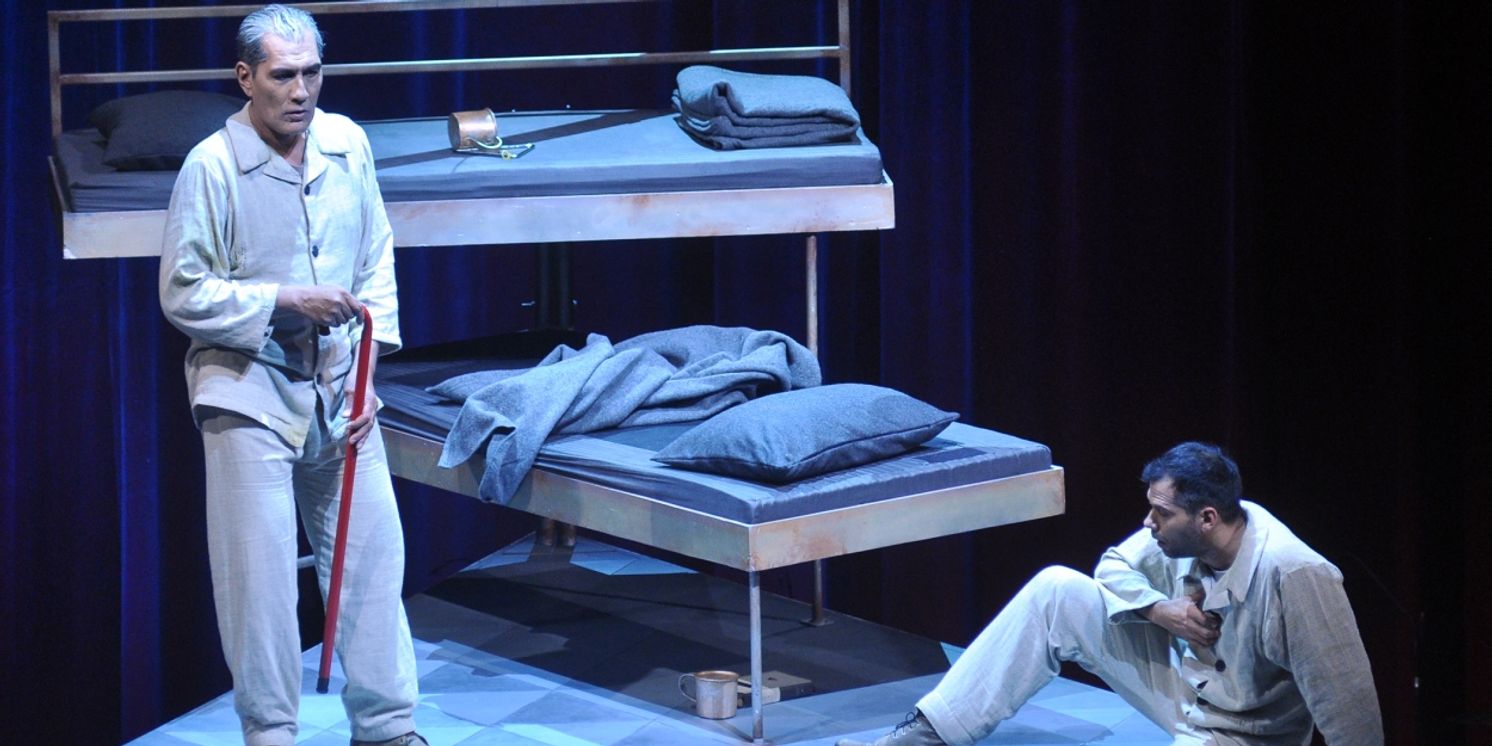Review: EVERY GOOD BOY DESERVES FAVOUR AT Jamshed Bhabha Theatre, NCPA
The play raises questions and soothes its provocations with a brilliant orchestra at its helm.

Every Good Boy Deserves Favour at Jamshed Bhabha Theatre, NCPA
Cast - Neil Bhoopalam, Denzil Smith, Soharab Ardeshir, Deepika Deshpande Amin and Mihaail Karachiwala
Director - Bruce Guthrie
Playwright - Tom Stoppard
Composer - Andre Previn
'Every Good Boy Deserves Favour' is a political satire that arrived on the NCPA stage for a rare performance. This spectacle was written by Tom Stoppard - the story of a political dissident in the Soviet Union. The play is accompanied by a 45-piece orchestra, performed by the Symphony Orchestra of India, which itself becomes a character of the play, adding to the crests and troughs of a prison-asylum's inhabitants.
In his director's note, Guthrie mentions that the play evoked Brecht, Pinter and Beckett "in the best ways". Truly so, the play mirrors the darkness and cynicism of post-war theatre, at the same time, it is hilarious - reminding us of the banality of evil. The playbill informs us that the play was first performed in 1977 by the Royal Shakespeare Company and Royal Philharmonic Orchestra. It tells the story of Alexander and Ivanov, imprisoned in a mental hospital. Alexander is arrested for voicing his opinions against the government. He is at the cusp of freedom - the world would be his again if he chooses to accept the lie that his dissent was indeed a disease that he has now been cured of. Meanwhile, Ivanov does not have a care for the world because an orchestra has taken over his mind.
In one of several heated exchanges, the psychiatrist of the hospital reminds Alexander that "your opinions are symptoms and your disease is indeed dissent." The dialogue rings true decades later, as the play finds a stage in Mumbai, India. We are no strangers to political turmoil and silence. The tension of the play resonates with each of us who has had to choose between honesty and complacency.
Mikel Toms, the resident conductor of the Symphony Orchestra of India, likens Ivanov's schizophrenic obsession with an imaginary orchestra to what he felt about his own orchestra during the pandemic. Life and world events had dampened his very belief that he indeed had an orchestra - just like the old man who believes and disbelieves in the existence of his orchestra inside the prison cell. Toms reminds us that Previn was parodying the music written by Shostakovich and Prokofiev, both of whom were aware of the need to toe the party line in order to survive Soviet persecution. Hence, just like the premise of Alexander's life, the music of the play also questions the impulses of art - can art be revered only when it is the outcome of resistance? Does art have the answer to questions of morality and ethics or is it all just a façade?
Stoppard cements the confusion of madness and civility as we learn that Alexander, the seemingly sane individual in the asylum has Ivanov as his surname. On the other hand, Ivanov, the madman who dreams of an orchestra, has Alexander as his first name. The two bear similar names, do they bear similar provocations as well? These questions are emoted wonderfully by a seasoned cast. Neil Bhoopalam adorns the hopelessness of individual commitment in a corrupt world and Denzil Smith rejoices in the abundance of music - despite the world. Sohrab Ardeshir has a tremendous presence on stage, his chase sequence with Denzel Smith was quite amusing. Set designer Francis O'Connor puts together a Modern Stage - lights and beds move to bring out the changing worlds of the play. The special attention to triangles and their changing stabilities is brought out through the stage design - augmenting Stoppard's rich dialogue.
The play raises questions and soothes its provocations with a brilliant orchestra at its helm. It was quite a delightful way to spend an evening at NCPA, although Soviet Russia's politics remains far from what would be on anyone's mind in South Bombay on a Sunday.
Reader Reviews
Videos
